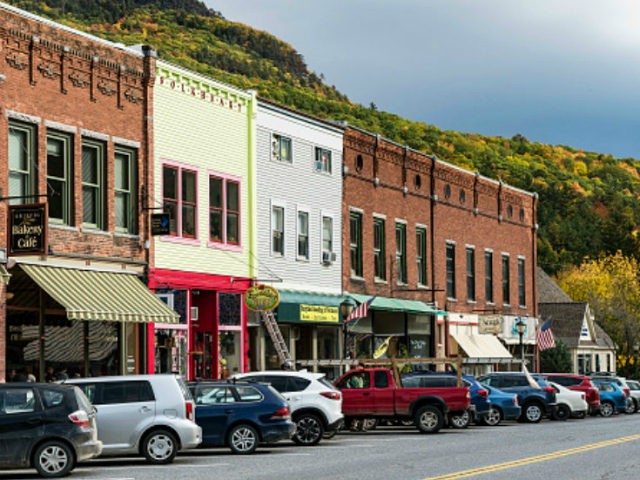The coronavirus pandemic that kept people locked in their homes for months turns out to have inspired a new wave of domestic migration as cities across the country offer incentives to remote workers ranging from cash to free recreational opportunities.
Bill Oesterle, co-founder and former CEO of Angie’s List and the co-founder of MakeMyMove, wrote about how his company connects remote workers with communities that want to attract new residents.
Oesterie’s op-ed in USA Today explains how the pandemic has put a new twist on economic development:
The term “talent-driven economic development” has become increasingly popular in city halls and statehouses over the past 10 years. Books like “The Rise of the Creative Class” by Richard Florida ignited enthusiastic discussions at economic development organizations across the country. In the Midwest and Northeast where demographic forces are causing serious work force problems, the focus on talent has become the most acute.
Unfortunately, no one had the foggiest notion how to do it. It’s no coincidence that the vast majority of existing economic development programs focus on attracting companies and the jobs that they create. Jobs attract talent. It has always worked that way.
Then millions of remote workers popped up and many of those will continue to work from home, even after the coronavirus is behind us.
The op-ed continues:
As communities begin to understand this value, it is likely that they will design programs to explore it. Ten thousand dollars may not be enough to move people at the margin, but $100,000 or more just might. At this point, no community has taken a big swing at attracting remote workers with major incentives and sophisticated targeting and marketing.
If that happens, the results could be dramatic. Recruiting 5,000 to 10,000 new remote workers to a local community is now feasible and would have a much more significant and immediate impact than traditional corporate subsidies. If efforts like this gain scale, geographically fixed workers might realize the substantial value they could capture if they moved to remote work, adding additional fuel to this paradigm-changing pandemic.
The San Francisco Chronicle reported on the phenomenon:
For towns and counties, it’s well worth forking out money to diversify their populations and boost their economies. New residents patronize local restaurants and stores, pay taxes, enroll their kids in schools and may volunteer or immerse themselves in civic activities.
To be sure, all the relocation incentives have fine print. They require income verification and proof that the new residents can work remotely. Some require buying a house … all want at least a year’s residency; some mandate two years. All limit how many folks they can accept.
Some programs include quirky local bonuses. Topeka, Kansas, throws in a year’s worth of Jimmy John sandwiches; northwest Arkansas springs for a mountain bike; West Virginia offers free whitewater rafting, skiing, rock climbing and rafting. Many places include a concierge service to support new residents, access to a co-working space and networking events.
Evan Hock, co-founder with Oesterle of MakeMyMove.com, said in the Chronicle report:
Many of these communities historically have been fly-over towns. Maybe they lost population in the last decade; growth has slowed. Brand-new citizens bring a lot of income and spending that is enormously valuable as it trickles through the economy.
“It’s a magical strategic intersection of new workforce trends and a shift in geographic preferences,” Brad Smith, Intuit’s former CEO, and currently executive chair of its board and chair of the Nordstrom board, said.
“Rural has become the new urban,” Smith said. “People want to be part of that Hallmark lifestyle in communities where they have a chance to know other people.”
Smith and his wife started a business, Ascend WV, that offers $12,000 cash, a year’s worth of free outdoor activities, and co-working space to selected people who move to West Virginia.
“Over the next five years, they aim to lure 1,000 remote workers, starting this year with 50 in Morgantown,” the Chronicle reported.
Some of the other moving incentive programs include:
- Lauderdale and Colbert counties in Alabama have the Remote Shoals program that offers a $10,000 incentive. The median home price in those locations is $175,000.
- Michigan’s Berrien County launched Move to Michigan, which offers $10,000 to selected new residents states, plus another $5,000 if they enrolled a child in public schools. The full reward requires buying a house for at least $200,000 and staying for at least two years.
- A variety of small towns in Iowa, Kansas and Texas offer free lots, valued at about $3,000, to new residents who want to build a house.
- OpportunityMaine offers up to $367 a month in state tax credits for recent college grads to pay off their student loans. It also offers networking for folks considering a relocation to get questions answered.
- Tulsa Remote, started in late 2018, has paid $10,000 to more than 700 people, many of whom moved to the northeast Oklahoma city with spouses, children and other family members.
Follow Penny Starr on Twitter or send news tips to pstarr@breitbart.com

COMMENTS
Please let us know if you're having issues with commenting.